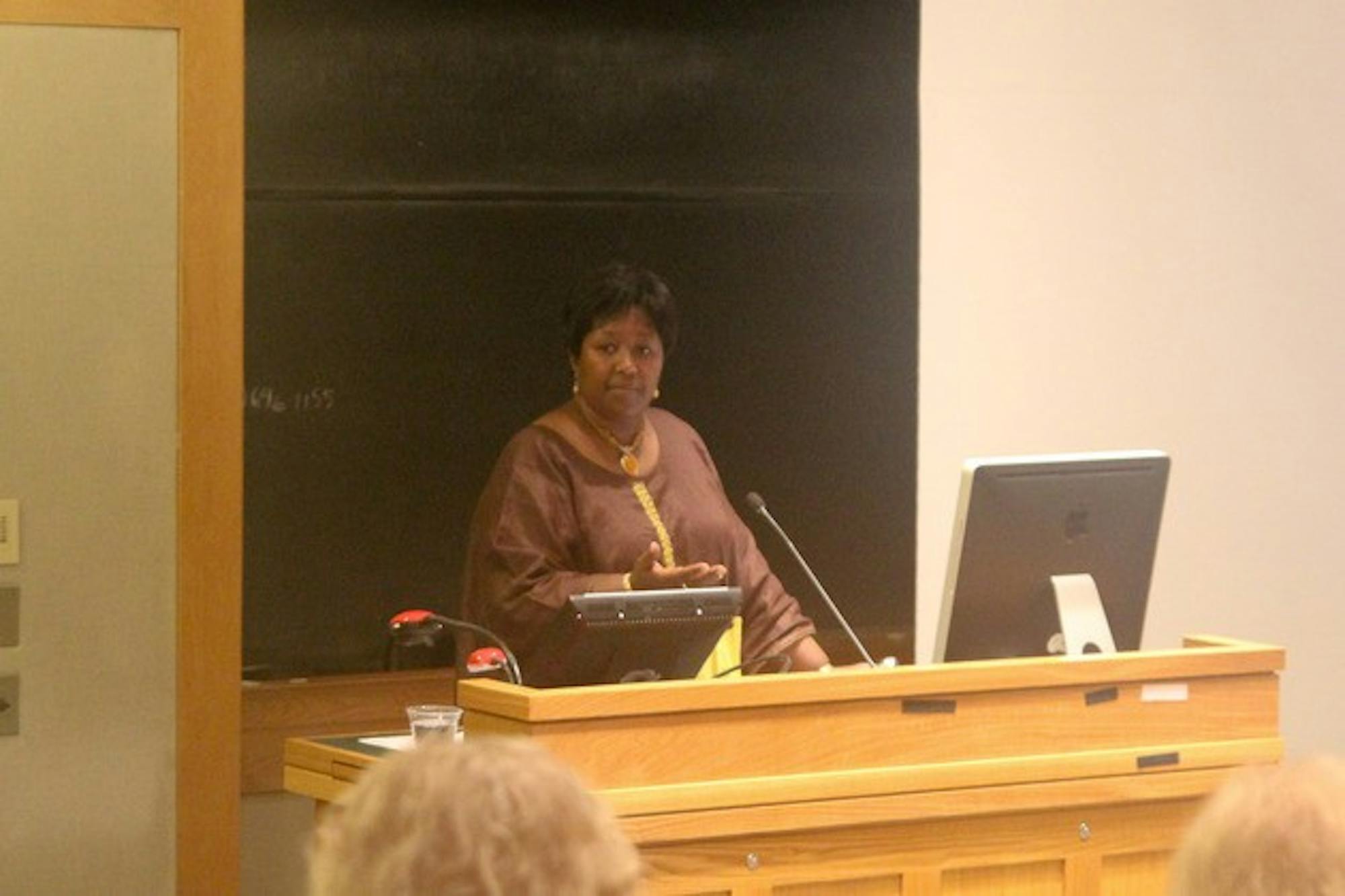The Geisel School of Medicine also announced Monday that it is partnering with the Rwanda Ministry of Health for the Human for Health program, which will help support development of a "high-quality and sustainable health system in Rwanda," according to a College press release. The program will help build an educational foundation and workforce in order to alleviate the health care worker shortage, the press release said.
"The Rwanda HRH Program will dramatically increase the number, quality and skill level of Rwandan clinicians and health sciences educators," Binagwaho said in the press release.
Binagwaho, who received an honorary degree from the College in 2010, shared her experiences working for her country's under-resourced health care system in her talk. The quality of Rwanda's health care system has improved significantly since the 1994 genocide left the country severely damaged, according to Binagwaho. The mortality rate for those who have HIV, tuberculosis and malaria has decreased by over 70 percent over the past 10 years, and the child mortality rate has decreased at a faster rate than many other African countries, Binagwaho said.
"It's not a miracle," she said. "This has helped build our system slowly."
Rwanda has improved its medical system since 1994 by empowering community health workers at the most basic level of care.
Although many residents of small cities in Rwanda have no high school or university education, some are trained to become medics and treat common diseases, according to Binagwaho. While these trained medics manage approximately 80 percent of disease at the community level, they also encourage those who are still ill after 24 hours to seek care at hospitals equipped with professional equipment and educated doctors, she said. Binagwaho talked extensively about the importance of getting local communities involved in shaping their own health care policies. This lack of community involvement affects countries all over the world, including the United States, according to Binagwaho. "I cannot bring the best policy in the world if it is designed in my office," she said. "We need to design it with the people that will benefit from it and the people that will implement it."
Binagwaho said that countries should use resources more efficiently. For example, although Rwanda receives a comparatively large amount of funding, the distribution of resources is relatively fragmented, because they are split among 2,000 nongovernmental organizations.
"We need to coordinate them around one plan and make sure what they deliver is cost-effective," she said.
Policies must also ensure that health care is distributed equally among different communities, according to Binagwaho.
"People shouldn't die because they are born in a place and live if they are born in another place," she said.
Although many residents of rural areas do not have access to high-quality health care, Rwanda has been able to combat this by building Butaro Hopsital, a "five-star hospital in the middle of nowhere," which ensures the "best care for the poorest," Binagwaho said.
Rwanda has made progress in its health care system over the past few years, but Binagwaho said that the entire continent of Africa still struggles to provide adequate care.
Approximately 50 percent of HIV-positive children in Africa die before their second birthday, even though the antiretroviral drugs used to treat HIV cost as little as $200 a year, she said.
"Our fellow brothers and sisters around us need to reach the same level of health care and apply the same principles so we're not ahead in the middle of nowhere," she said. "If we proved that we can do it coming from scratch, that means it's something we can do."
Binagwaho has helped millions of Rwandans through her efforts to rebuild the Rwandan health care system, Interim College President Carol Folt said in an introduction to the lecture. "She helped create a health care system that has become a model for all of Africa," Folt said.
Students who attended the event said that they appreciated Binagwaho's discussion of such a timely issue. "I thought it was an incredible discussion," Kathleen Dobell '14 said. "[The Rwandan system] represents a health care system that a lot of countries can use as a model." Roshen John '15 said that the concepts Binagwaho discussed can be applied to both developed countries and developing countries.
"I thought it was important because you can see some of the ways she tackled health care problems in her country, which doesn't have a lot of resources," he said.
The partnership between Geisel and the Rwanda Ministry of Health is a seven-year program that was announced by former U.S. President Bill Clinton in late July.
Geisel is one of seven U.S. medical schools partnering with Rwanda's Ministry of Health. The lecture, titled "Time of a Paradigm Shift in Global Health Solidarity," was sponsored by the Dartmouth Center for Health Care Delivery Science.




